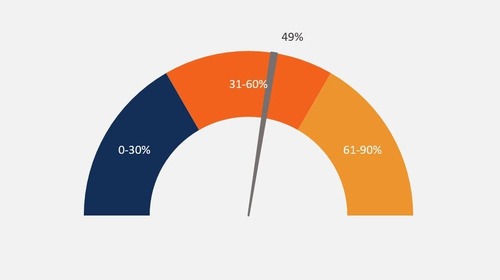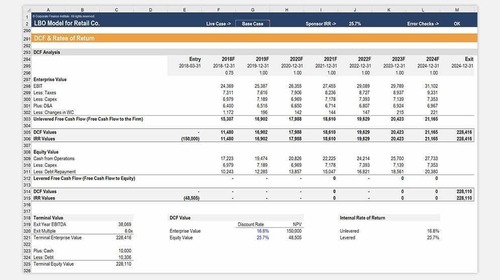Why Skills-First Hiring Matters in Finance & Banking
With the recent news that Minnesota is dropping the college degree requirement for state jobs, I was again reminded of the growing trend to favor skills over degrees.
The focus on skills over degrees continues to be one of the approaches to hiring and workforce development that I’m most excited about, particularly in the fast-growth finance & banking sector.
With total employment in the U.S. projected to grow 2.8% annually from 2023-2032, according to the Bureau of Labor Statistics (BLS), several roles in finance will grow faster than average, leading to a likely talent gap that can be filled with skills-based training & hiring. Some of the fastest-growing roles in finance include:
- Budget Analyst
- Risk Manager
- Financial Analyst
- Treasurer
- Controller
- Financial Planning & Analysis
- Financial Advisor
- Investment Banking
To fill these and other roles, a skills-based approach can help ensure efficient, effective talent acquisition and increased productivity and efficiency from new hires.

What is Skills-Based Hiring?
Skills-based hiring is a recruiting approach that evaluates candidates based on their demonstrated skills and abilities rather than their more traditional qualifications, such as degrees or work experience. This shifts the focus to a competence-centric hiring process and prioritizes the skills and abilities of candidates over their educational or professional pedigree.
It’s not that education, degrees, and professional pedigree don’t matter at all. It’s that they are de-emphasized in favor of demonstrated skills. This shifts the focus to actual capability over the halo effect that comes along with a candidate’s educational and professional background.
Traditionally, the recruitment process has been degree-focused. Job descriptions frequently list a bachelor’s or master’s degree as a prerequisite, which can immediately exclude a large pool of potentially competent candidates. However, the assumption that academic qualifications directly correlate with job performance is increasingly being questioned by leading employers.
Skills-based hiring emphasizes the core competencies necessary for a particular job. It includes a hiring process that attempts to evaluate candidates on their ability to perform tasks, solve problems, and adapt to new situations—critical factors that contribute to their potential success within a role.
Benefits of Skills-Based Hiring
Skills-based hiring has gained traction in recent years as employers seek to build more diverse and adaptable workforces and fill workforce gaps.
This benefits both employers and candidates.
Benefits for employers
- Access to a wider, more diverse talent pool. Skills-based hiring expands the pool of eligible candidates beyond those with traditional qualifications, allowing employers to consider individuals from diverse backgrounds and experiences. This can be particularly beneficial for filling specialized or niche roles where traditional credentials may not accurately reflect a candidate’s capabilities.
- Improved hiring accuracy. By focusing on demonstrated abilities, skills-based hiring can lead to more accurate assessments of a candidate’s suitability for a role. This can reduce the risk of hiring individuals who lack the necessary skills or experience, leading to faster onboarding, increased productivity, better job performance, and reduced turnover.
- Increased diversity. Skills-based hiring helps break down barriers that may have traditionally excluded certain groups from employment opportunities. By focusing on skills rather than traditional credentials, employers can attract and retain talent from diverse backgrounds, fostering a more inclusive and equitable workplace.
- Reduced hiring costs. Skills-based hiring can streamline the recruitment process, reducing the time and resources spent on screening resumes and conducting interviews with unqualified candidates. This can lead to lower overall hiring costs and faster time-to-fill for open positions.
- Improved employee engagement and retention. Employees who feel that their skills are valued and utilized are more likely to be engaged in their work and committed to their organization. Skills-based hiring can lead to a more engaged and satisfied workforce, reducing turnover and increasing productivity. In the era of growing employee disengagement, this becomes more important than ever.
Benefits for candidates
- More opportunity. Skills-based hiring opens up more opportunities for job seekers who may not have traditional qualifications but possess valuable skills and experience. This allows individuals to showcase their capabilities and compete for positions that may have been previously inaccessible.
- Recognition for expertise. Skills-based hiring emphasizes the value of skills and expertise, providing job seekers with an opportunity to demonstrate their capabilities and gain recognition for their strengths. This can boost both confidence and career prospects.
- A more fair assessment of abilities. Skills-based hiring provides a more equitable assessment of job seekers’ abilities, reducing the emphasis on traditional credentials that may not accurately reflect their skills or potential. This can level the playing field for individuals with diverse backgrounds and experiences.
- Career advancement. Skills-based hiring can lead to greater opportunities for career growth and development. When skills are valued and recognized, employees are more likely to be given opportunities to learn new skills and advance their careers within the organization.
- Alignment with personal skills and interests. Skills-based hiring allows job seekers to pursue positions that align with their skills and interests, leading to greater job satisfaction and engagement. This can contribute to overall well-being and career fulfillment.
Overall, skills-based hiring offers a more equitable, effective, and future-proof approach to recruitment and talent management. By focusing on skills and abilities, employers can build more diverse and adaptable workforces, while job seekers can find opportunities that match their strengths and interests.
How to Get Started with Skills-Based Hiring
“The essence of the structural reset is this: In evaluating job applicants, employers are suspending the use of degree completion as a proxy and instead now favor hiring on the basis of demonstrated skills and competencies.” – Skills-based hiring is on the rise, HBR
Given the benefits for both job seekers and employers, it’s no wonder that the skills-based hiring trends continue to accelerate. But what does it mean in practice, and how can employers make the shift?
While the advantages of skills-first hiring are clear, implementing it is not without challenges. I always recommend starting small by removing degree requirements from job postings, redesigning job descriptions to focus on competencies and skills needed to fulfill the responsibilities of the role, and updating the interview process to focus on situational questions and skill assessments.
Here are a few ways to get started with a skills-based hiring process in your organization:
- Identify the skills required for the role. The first crucial step is to identify the specific skills and competencies that are required for the role. This can be done by analyzing the job description, talking to current employees in the role, and conducting industry research. Consider the actual work to be done and the competencies someone will need to excel in the position.
- Remove degree requirements from job postings. This simple step sends an important message about what’s important to your organization and will signal that skills are most important to applicants.
- Develop skills assessments. Once the required skills have been identified, skills assessments can be developed to measure candidates’ proficiency in those skills. Skills assessments can take a variety of forms, including written tests, skills demonstrations, portfolio reviews, and interviews.
- Screen resumes and applications. Resumes and applications should be screened to identify candidates who have the skills and experience that are required for the role. However, it is important to avoid relying too heavily on these documents, as they may not always provide an accurate picture of a candidate’s skills. When evaluating applicants, review any micro-credentials or certifications they may have when they tend to be highly focused on skills and demonstrate a candidate’s commitment to developing their own proficiency.
- Conduct skills-based interviews. Skills-based interviews focus on assessing a candidate’s ability to perform the skills that are required for the role. This can be done by asking candidates about their past experiences using those skills, giving them hands-on tasks to complete, and asking them situational questions.
Skills-Based Hiring Will Be the Norm in the Future
Skills-based hiring is in focus for a reason: a growing number of businesses are realizing the value that non-traditional candidates—those who may lack a formal degree or have an unconventional career path but possess the necessary skills—can bring to their workforce. And in a world that places importance on equity, skills-based hiring is the answer.
By focusing on the skills and competencies that are required for a role, employers can identify the most qualified candidates, regardless of their educational background or work experience.
The emphasis on skills-first hiring underscores a crucial shift in recognizing that competence and potential often extend beyond formal education. By adopting this model, organizations can access a broader talent pool, address skills gaps, and foster a diverse and inclusive workforce.
Additional Resources
The following resources may also be helpful:
Create a free account to unlock this Template
Access and download collection of free Templates to help power your productivity and performance.
Already have an account? Log in
Supercharge your skills with Premium Templates
Take your learning and productivity to the next level with our Premium Templates.
Upgrading to a paid membership gives you access to our extensive collection of plug-and-play Templates designed to power your performance—as well as CFI's full course catalog and accredited Certification Programs.
Already have a Self-Study or Full-Immersion membership? Log in
Access Exclusive Templates
Gain unlimited access to more than 250 productivity Templates, CFI's full course catalog and accredited Certification Programs, hundreds of resources, expert reviews and support, the chance to work with real-world finance and research tools, and more.
Already have a Full-Immersion membership? Log in





